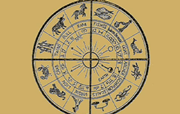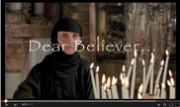 Jim Downard is a Communicator of the Secular Global Institute who has contributed his entire book to our website. Troubles in Paradise is not just another book on evolution. It's the comprehensive guide to how creationists spin facts and emotional arguments. You'll learn the main tricks of our opponents, how to rebuff them with fact-heavy evidence, and how to side step their oratorical tricks. He is currently the atheist blogger at Spokane Faith & Values, and agreed to be interviewed this week by Johnny Monsarrat.
Jim Downard is a Communicator of the Secular Global Institute who has contributed his entire book to our website. Troubles in Paradise is not just another book on evolution. It's the comprehensive guide to how creationists spin facts and emotional arguments. You'll learn the main tricks of our opponents, how to rebuff them with fact-heavy evidence, and how to side step their oratorical tricks. He is currently the atheist blogger at Spokane Faith & Values, and agreed to be interviewed this week by Johnny Monsarrat.
SGI: Learning the facts about evolution is easy enough, but arguing the point with Creationists is a much stickier issue. How did this topic grab your attention?
Jim Downard: I came into this because of my love of dinosaurs, which I explain in the introduction to the book, and I slid into it further because the Intelligent Design Movement was coming along... The character that really got me interested on a methodological angle -- and I describe it all in the book -- is Richard Milton, who you probably have never heard of. He's a British anti-evolutionist, a minor figure, and only a few Creationists ever bother citing him, but he's functionally a Young Earth Creationist without being religious. And you go, "What?! How is that possible?" and it becomes painfully obvious how it's possible... he's relying on secondary sources without bothering to check them out.
SGI: Having all the facts is sometimes not enough when your audience is thinking emotionally. What do you do when a Creationist makes emotional arguments?
Jim Downard: Most Creationists don't think they are giving emotional arguments. An awful lot of them are very fact based. The problem is, where are they getting their facts from? The typical Creationist is going to be talking about radiometric dating, they're going to be talking about geological issues, they're going to be talking about "The Big Bang", they're going to be talking about Fossil Data...
SGI: What about the lovable knuckleheads who question evolution of millions of years ago by saying, "Were you there?" That's an emotional argument.
Jim Downard: It's an epistemological one, frankly. This one started entering the fray in the 1980s and 90s, and it isn't even an entirely Creationist creation, there are a lot of Intelligent Designers that book this thing. It's the separation between the supposedly historical science and objective science. That argument can be turned around, though, because they don't believe that accurately and consistently. If you ask, "Were you there when the bible was written?" They weren't there when the bible was written, so how do they know it's true? At some point, they're arbitrarily following one set of information, that they are allowing to have special privileges as to it being absolutely true and everything else has to follow.
Jim Downard: The problem is that we don't do that in real life. Forensic science, all the time, makes historical inferences about the past. The other problem is that they don't get to play exclusively. If you can make the kinds of arguments that a Ken Ham does, doesn't Eric von Daniken with his ancient astronauts? One of the things you want to avoid is the idea that your opponent is the only player in town. After reading "Troubles in Paradise", hopefully people will see a little bit more of some of the other players that are in town, and how the same system operates, with a wide variety of people.
SGI: You mentioned creationist Ken Ham, who recently had a public debate on creationism with Bill Nye, television's "Bill Nye the Science Guy". To me it seemed that both sides were trotting out facts with such specialized terms that the audience had little choice but to take it on faith. Of course, Bill Nye's side had real facts, and Ken Ham's were bogus, but how can an audience tell?
Jim Downard: Indeed. Part of the problem is that Bill Nye is not an evolutionary scientist. He's not a geologist. He comes from the physics/astrophysics/techno-science background. Josh Rosenau and the NCSE people did a very good job at briefing him on a lot of technical issues. But, he's talking from a secondary familiarity, not visceral understanding of the technical material. I found it really revealing that from a methods point of view, there were tactics that could have been undertaken... Ham put up a chart at one point -- I think he was purporting to show the various Created types, and one of them was a little silhouette of a triceratops. I would have just pounced on that and asked him to explain, "What exactly are those? Are those created? Are those "Baramins"? Now, that's a buzzword from a Creationist point of view, and I would be testing out whether or not Ham knew his own terminology or not, which I suspect he doesn't...
Jim Downard: I am highly suspicious that Ken Ham has never bothered to read any of his own literature in this area. This would be a matter of him falling apart on the basis of his own side's argument that he doesn't understand.
SGI: I've heard that Creationists and Bible-thumpers in general heavily research their topic. So it's good that we rationalists have someone like you who is similarly armed. But doesn't it frustrate you having to wade through all their Big Foot nonsense?
Jim Downard: No, no, no, no. Scholarship is a contact sport. This is the most delightful stuff in the world, and it's immensely powerful as a methodological tool. When you encounter a Creationist... the first question out of your mouth should be, "Gosh, that's an interesting thing you believe. How have you come to believe that? What are the sources that you have been relying on, particularly?" In some cases, they are operating at a very low level, and it's just like, "Well, I know the Flood happened because the Bible said so."
Jim Downard: It's surprising, the number of Anti-Evolutionists who honestly think they're first person to discover all of this stuff. You're there ahead of them, and you know exactly where they're coming from before they put the period at the end of their sentence, and you're ready to counter their specific points. You're not trying to talk about large scale philosophical issues, or the bigger why: is there something rather than nothing, although you can get into those issues later on.
Jim Downard: Pull the rug out from under their own primary sources. Then the other killer question that no other Anti-Evolutionist is able to answer is, "Oh gosh. You've read Michael Behe. What kind of critical analysis did you do of Behe to make you confident that he knows what he's talking about?" They've never done that. You'll often get the reply, "Well, I'm too busy to do that." To which I'll be able to work out from under, "Well, you weren't too busy to be gullible in the first place when you read it, but apparently you are too busy to check out whether or not you should have been gullible."
SGI: Speaking with you is like that movie where a high school geek befriends a big jock who scares away all the bullies. I'd love to be standing next to you next time a Creationist asks me for me lunch money.
Jim Downard: I know where Creationists are coming from. There's a genuine honesty in their view point. They think they've got all this wonderful evidence, and they're very, very confident about it. They've often never encountered a discouraging word. They've probably never read any of the criticism, or worse - they've let one side tell them what both sides think... I don't give a rat's ass about authority courting. I want to know what the data are.
Jim Downard: The Scholarly Method, combined with the evidence, acts like a very tight vice. You're pulling the rug out from under their source material from the very beginning, you find out where they're coming from in terms of who they're relying on secondarily. Secondary scholarship is pathological in the anti-evolutionary community, and 90% of Anti-Evolutionists have never read an Evolutionist directly. They've only read accounts quoted from the Anti-Evolutionists, or even secondary, tertiary, or even further down the daisy chain. A lot of people will repeat Jonathan Wells. They've never actually read Jonathan Wells, but they've got his ten talking points about the problems you should ask your Evolutionist friend, because they got it off the Internet or some preacher has given it to them. You get those things all the time.
SGI: Your enthusiasm is infectious! I know that people are going to be curious to check out "Troubles in Paradise", which they can find on our website.
Jim Downard: Don't take my word for anything. Check my sources! It's like the Conan O'Brien test, except in my case, I think I'm actually right. Any sound scholarship should be able to withstand 'follow the sources'.
SGI: We'd love to know more about he man behind the research. Tell us something personal that you don't mind sharing.
Jim Downard: My dad apparently repaired the wagon of one of the partners in Butch Cassidy's Hole in the Wall Gang. Our family had a whole bunch of polygamous Mormons down in Utah in our background. I was raised in a relatively non-religious family, who'd left the church long before I came along. All of us kids were sent to Sunday School, just so that we could appreciate it, and I was the one that was kicked out. I can sympathise with Ellie Arroway, the character in Contact, because we both got in trouble by asking questions about the Flood. My mom could care less about any of this stuff, I was just reading the Bible. The worst thing they could ever do in that Sunday School class was to give me an annotated Bible with cross-references.
SGI: I can just imagine you as a child waving a thick notebook and asking a shocked church teacher about primary sources. You were how old?
Jim Downard: I must have been 7. Somewhere around there. It was a Methodist Sunday School, and looked like the Wizard of Oz's green architecture. It must have been built in the 1930s, the church. Art Deco. It was down in a daylight basement, there were big windows, and the teacher was probably in his early 30s, and this may have been the first time he was doing stuff.
Jim Downard: I had been asking questions about the Flood, and how many animals were on [it], because I was already a dinosaur geek. I remember vividly that he said to me, "You shouldn't be asking questions like that here." I recall at the time that I thought, "Where am I supposed to ask questions except in Sunday School?" At that point, I was very disappointed with it. Afterward, they called my mom and said, "Do not bring Jamie back next week. We don't want him here anymore."
SGI: Wow.
Jim Downard: So, I got kicked out of Sunday School.
SGI: What's your parting shot?
Jim Downard: Oh gosh! Well. I hope people will read through the various material that got posted on the site... Though it sounds terribly dry to do the Scholarly Methods approach of checking out references and footnotes, that it's an immensely powerful thing. The kind of mindset that I call "Tortucans," the turtle mind, are impervious to criticism.
Jim Downard: They can't play this game. Forcing them to play this game puts them on uncomfortable footing, that only gives our side strength.
SGI: I think we're all prepared for our awkward family Thanksgivings now! We're going to be bulletproof now, thanks to your book.
Jim Downard: I hope so!
You can find Troubles in Paradise on the SGI website, and we suspect that Jim would love us to post his email,
, so you can send him your questions and comments. We are working to hook up the website so that every work by a specific fellow or contributor is listed on their page on the SGI website.
 Video: World's Oldest Freethought Publication
Video: World's Oldest Freethought Publication Video: Theism is Not Rational by Aron Ra.
Video: Theism is Not Rational by Aron Ra.


 Video: A C Grayling Discusses Humanism
Video: A C Grayling Discusses Humanism Video: Leonardo DiCaprio
Video: Leonardo DiCaprio